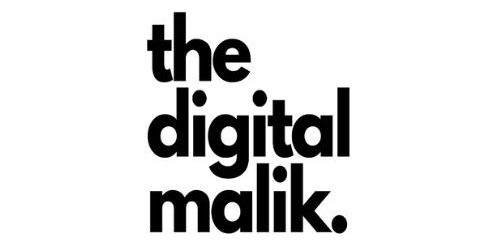Is Affiliate Marketing Legit in 2025? The Hard Facts
Hey, fellow Digital Entrepreneur!
Everywhere you look online, experts are touting Affiliate Marketing as the golden ticket to financial freedom. So the questions crosses your mind, is Affiliate Marketing Legit, or is it a scam?
With countless contradicting strategies and mixed success stories flooding your feed, and so many voices competing for your attention, it’s hard to separate fact from fiction.
While some claim to make six figure incomes from their couch, others dismiss it as just another internet scheme.
Finding the Truth about making money in Affiliate Marketing can feel like navigating through a maze of hype and skepticism.

Whether you’re hearing about Affiliate Marketing for the first time or have dabbled in online income strategies before, this guide will give you everything you need to know.
Affiliate Marketing isn’t just a buzzword – it’s a $36.9 Billions billion industry that’s projected to grow even more in 2030. Just in the past 2 years its surged from $15.7 billion in 2023. The current global affiliate marketing industry is worth close to $16 billion.
Imagine earning money while you sleep, recommending products you actually love. Sounds too good to be true? Not anymore! But with so much buzz, skepticism arises—is it really worth your time and effort in 2025?
By the end, this guide will be your No-BS roadmap to understanding whether Affiliate Marketing is Legit, how to do it right, and how to avoid the landmines that trip up most newbies.
TL;DR
- Affiliate Marketing is a legitimate billion-dollar industry and excellent online business model growing in 2025.
- Success requires involves promoting products and earning commissions for referrals.
- Success depends on choosing the Right Niche, Products, and Strategies.
- It’s not a “get-rich-quick” scheme—Treat it like a real business, it requires “A LOT OF” effort, consistency, and skill-building.
- Avoid scams by partnering only with reputable Affiliate Programs.
What Exactly is Affiliate Marketing (And How Does It Work?)
Listen up, because I’m about to break down Affiliate Marketing in a way that’ll make total sense – and trust me, I’ll keep it brief as as my main focus is on the question Is Affiliate Marketing Legit?
When I first understood this concept, my mind was blown – we’re talking about a system where you can literally make money by sharing products you actually believe in.
Affiliate Marketing is essentially a performance-based marketing strategy. Here’s the gist:
- You, the affiliate, become a salesperson for another company’s products or services.
- You promote these products through your own channels (blog, social media, email list, etc.).
- When someone clicks on your unique affiliate link and makes a purchase, you earn a commission.
It’s like a win-win-win situation:
- The company gets more sales and expands their reach.
- You, the affiliate, earn income by promoting products you believe in.
- The customer gets access to potentially valuable products or services.
Think of it like this: Imagine you’re a foodie blogger. You could partner with a cookware company. You’d review their products, share your favorite recipes using their tools, and include your unique affiliate link in your blog posts and social media.
If someone clicks your link and buys a fancy new Dutch oven, you get a slice of the pie!
Popular Affiliate Marketing Platforms:
- Amazon Associates: A massive platform with a huge selection of products.
- ClickBank: Focuses on digital products like ebooks and online courses.
- ShareASale: A wide variety of merchants across different niches.
Pros
Cons
Affiliate Marketing Strategies
Affiliate Marketing Strategies entail a highly accessible and potentially lucrative business model. With low startup costs and the flexibility to work independently, you can promote products you love and earn commissions on sales generated through your unique referral links.
Its a performance-based approach rewarding your efforts directly, and as your audience grows, so does your earning potential.
By building a strong online presence and cultivating a loyal following, you can even create streams of passive income that continue to generate revenue with minimal ongoing effort.
Here are a few common methods used by Affiliate Marketers:
- Content Marketing: Create high-quality blog posts, reviews, and videos that showcase the products you’re promoting.
- Email Marketing: Build an email list and send targeted promotions to your subscribers.
- Social Media Marketing: Leverage platforms like Instagram, TikTok, and YouTube to reach a wider audience.
- Paid Advertising: Run targeted ads on platforms like Google Ads and social media to drive traffic to your affiliate links.
High-Ticket Affiliate Marketing
There’s also the potential for big money with High-Ticket Affiliate Marketing. This involves promoting premium products or services, like coaching programs, real estate, or luxury goods.
While the commissions are higher, it can be more challenging to convince people to invest in these higher-priced items.
So, you’re wondering: Is Affiliate Marketing legit or a scam?
Spoiler alert? It’s legit. But not in the way most people think.
Is Affiliate Marketing Legit or Just Another Online Scam? My Brutally Honest Take
Listen, I’ve been around the online Digital Marketing block more times than I can count, and I’ve heard every single pitch about “making money while you sleep” that exists.
So the final answer is, YES! Absolutely!
When done ethically and transparently, Affiliate Marketing can be a legitimate and rewarding way to make income online? Affiliate marketing is a real, legitimate way to create and Diversify Your Income Streams. It takes work, strategy, and genuine passion.
When I first stumbled into Affiliate Marketing, I was about as skeptical as they come – arms crossed, eyebrow raised, totally convinced this was just another get-rich-quick scheme waiting to rob me blind.
The Real Truth About Affiliate Marketing
Let me break this down like I’m talking to my younger self who was desperate to escape the 9-to-5 grind. Gosh that was long long time ago. Affiliate Marketing isn’t a magical money printer, but it’s also NOT some sketchy underground operation.
It’s a real business model that major brands like Amazon, Shopify, and ClickBank have been using for years to expand their reach.
When I first started, I made exactly \$0 for months. Zero. Zilch. Nada. My first commission? A whopping \$12.47 from recommending a coffee maker on Amazon.
I remember doing a ridiculous happy dance in my home office, realizing this might actually work.
How Legit Are We Talking?
Major companies aren’t stupid. They don’t just hand out Affiliate Partnerships to random internet randos.
These are structured, professional relationships where you’re essentially becoming a Commissioned Sales Representative – but online.
Legitimacy:
Major Players: Affiliate marketing is a cornerstone of online commerce. Giants like Amazon, Shopify, and ClickBank rely heavily on Affiliate Programs to expand their reach.
Proven Model: Countless individuals and businesses generate substantial income through Affiliate Marketing. It’s a legitimate and established way to Monetize Online Content.
Income Potential:
- Income Potential:
- Wide Range: Earnings vary wildly. Top earners can generate six-figure incomes, while beginners might start with small commissions.
- Realistic Expectations:
- Building a successful Affiliate Marketing business takes time, effort, and consistent work. Quick riches are rare.
- Multiple Revenue Streams:
- Affiliate Marketing can be combined with other income sources like selling your own products or services.
Some quick stats that blew my mind
- The Affiliate Marketing industry is worth over \$8.2 billion – 81% of brands use affiliate marketing programs to improve their business
- Top affiliates can earn six-figure incomes annually, check my article on High-Ticket Affiliate Programs.
How to Identify Genuine Opportunities vs. Potential Scams:
Not all Affiliate Programs are created equal.
- Unrealistic income promises:
- If an affiliate program promises you’ll earn a certain amount of money without putting in any effort, it’s likely a scam.
- Lack of transparency:
- If an affiliate program doesn’t clearly disclose its terms and conditions, it’s a red flag.
- Poor product quality:
- If the product or service being promoted is low-quality or doesn’t deliver on its promises, it’s a sign of a scam.
The Red Flags: Separating Opportunity from Scams
With so many affiliate programs out there, it can be hard to know which ones are legit and which ones are scams.
Here are a few Red Flags to watch out for:
🚩 Scam Warning Signs:
- Promises of guaranteed income
- Requires you to pay large upfront fees
- No clear product or service being sold
- Sounds too good to be true (because it probably is)
🟢 Legitimate Program Indicators:
- Transparent commission structure
- stablished brand reputation
- Clear terms and conditions
- Actual products or services people want
- Free to join
Legal & Ethical Considerations:
Affiliate marketing is a regulated industry, and there are laws in place to protect consumers and affiliates alike. For example, the Federal Trade Commission (FTC) requires Affiliates to Disclose their relationship with the product or service they’re promoting.
- Transparency: Always Disclose your Affiliate Relationships to your audience.
- FTC Guidelines: Adhere to the Federal Trade Commission’s Guidelines on endorsements and testimonials.
- Avoid Deceptive Practices: Never mislead your audience or make false promises about products or earnings.
My Personal Ethical Code
I learned quickly that Trust is everything. My audience isn’t just a number – they’re real people who rely on my recommendations. If I wouldn’t personally use a product, I won’t promote it. Period. This means turning down hundreds, sometimes thousands of dollars in potential commissions.
Building Trust with Your Audience:
- Honesty and Transparency: Be upfront about your Affiliate relationships.
- Provide Value: Focus on providing genuine value to your audience through informative and helpful content.
- Build Long-Term Relationships: Prioritize building trust and long-term relationships with your audience.
But guess what? My audience knows I’m not just chasing a quick buck, and that’s worth more than any single commission check.
Pro Tips From Trenches
Avoiding Common Affiliate Marketing Pitfalls
Alright, let me share some hard-earned wisdom about avoiding those sneaky Affiliate Marketing Pitfalls – trust me, I’ve stepped into quite a few of these myself!
You know that feeling when something seems too good to be true?
Well, in Affiliate Marketing, that gut instinct is your best friend. I remember getting super excited about this “amazing opportunity” that promised 90% commissions on digital products.
Spoiler alert: it turned out to be a total pyramid scheme!
That experience taught me to spot red flags faster than my mom spots dust on furniture.
First things first – let’s talk about how to spot sketchy Affiliate Programs.
If they’re promising overnight riches or “guaranteed success,” run for the hills! It’s like those late-night infomercials promising you’ll lose 20 pounds by just thinking about exercise.
Legitimate Programs are usually pretty transparent about their commission structures and payment terms.
Here’s my tried-and-true method for vetting Affiliate Networks
(and boy, do I wish I’d known this earlier)
1. Check if they have a physical business address
2. Look up reviews from ACTUAL affiliates (not just testimonials on their site)
3. Research their payment history and methods
4. Verify their product quality personally – never promote something you wouldn’t buy yourself
One of the biggest facepalm 🤦 moments new affiliates have (yours truly included) is trying to promote EVERYTHING under the sun.
Listen, you’re not Walmart – you don’t need to sell everything! Pick your lane, stay in it and Niche down.
Building credibility is like growing a garden – it takes time, patience, and consistent care.
One of my biggest mistakes was not building an email list from day one. Your email list is like your own personal insurance policy against algorithm changes.
Trust me, you don’t want all your eggs in the social media basket!
Common Rookie Mistakes I’ve Seen (and Made):
- Jumping into high-competition niches without a unique angle
- Not tracking affiliate links properly (lost commissions hurt, y’all!)
- Forgetting to test products before promoting them
- Ignoring mobile optimization (hello, it’s not 2005 anymore!)
How to Start Affiliate Marketing the Right Way in 2025
Affiliate marketing continues to be a lucrative opportunity for those looking to generate online income in 2025. However, starting the right way is key to building a sustainable and successful Affiliate Business.
Here’s what you need to know:
Choosing the Right Niche
- Focus on Niche Selection that aligns with your passion and expertise.
- This ensures you stay motivated and can create authentic, engaging content for your audience.
- Popular niches include health, finance, technology, and lifestyle, but don’t shy away from micro-niches where you can stand out.
Platforms and Networks to Join for Beginners
- Begin with reputable affiliate networks like Amazon Associates, ClickBank, or ShareASale.
- These platforms are beginner-friendly and offer a wide range of products and services to promote.
Essential Skills for Successful Affiliate Marketing
- Develop skills in SEO, copywriting, analytics, and email marketing.
- Learning how to track performance metrics and optimize campaigns is crucial for long-term success.
Building a Content Strategy That Provides Genuine Value
- Focus on creating helpful, educational, and engaging content.
- This could include blog posts, videos, social media updates, or email newsletters.
- Authenticity and trust are critical for converting your audience into buyers.
Technical Setup: Websites, Blogs, and Social Media Channels
- Invest in setting up a professional-looking website or blog as your primary platform.
- Leverage social media to drive traffic and build an engaged community.
- Tools like WordPress, Canva, and scheduling platforms like Buffer can streamline your operations.
Understanding Different Commission Structures
- Familiarize yourself with the various commission models such as:
- Pay-per-sale (PPS)
- Pay-per-click (PPC)
- Pay-per-lead (PPL).
- Choose programs with transparent policies and favorable payouts that align with your niche.
Realistic Income Expectations in Affiliate Marketing
Let’s talk about the big question everyone asks when starting affiliate marketing: How much money can I actually make?
Spoiler alert—it depends!
But don’t worry; I’m here to break it down for you so you can go in with realistic expectations and a winning mindset.
What Do Affiliates Actually Earn?
For beginners, the average monthly earnings might only be a few hundred dollars—think of it as “nice dinner out” money. Intermediates? They’re making anywhere from $1,000 to $5,000 a month, which is more like “vacation funds.” The pros? Advanced affiliates can rake in $10,000+ monthly, and that’s the “quit your 9-to-5 and live your dream” money!
What Impacts Your Affiliate Earnings?
Not all affiliates are created equal. Your niche, the effort you put in, and the programs you choose will all play a role.
The secret sauce? Consistency and understanding what your audience really needs.
Short-Term Hustle vs. Long-Term Wealth
Quick cash might come from trending products or one-off promotions, but the real magic is in building trust and creating evergreen content that pays off for years. Imagine a blog post or video earning you commissions while you sleep—sounds nice, right?
Don’t Put All Your Eggs in One Basket
Pro tip: Diversify Your Income Streams!
Promote products from multiple programs, explore subscription-based services, or even try affiliate partnerships in different niches. That way, if one source dries up, your income doesn’t take a hit.
Your success depends on strategy, persistence, and providing genuine value to your audience.
Let’s do this! 🚀
Affiliate marketing isn’t a magic money printer, but it’s definitely a legitimate way to generate income online.
7 “Truth bombs” about Affiliate Marketing Business! 🧨
- Building a sustainable affiliate marketing business is like training for a marathon, not a sprint. 🏃♂️ You wouldn’t try to run 26 miles without proper training, right? Same principle applies here. 🏃♂️
- Take your time, build genuine relationships with your audience, and always, ALWAYS prioritize trust over quick profits. ⏳
- ⛙ And remember, just because someone else is making bank – promoting luxury watches doesn’t mean that’s your path. ⛙
- Find your own groove, stick to what you know and love, and success will follow. It might take longer than those “gurus” promise, but it’ll be real and sustainable. 🕺
- The most valuable tip I can share? Document everything! Keep track of what works and what bombs. 💡
- Your failed attempts are just as valuable as your successes – they’re like little breadcrumbs leading you to what actually works in your niche. 👣
Key Takeaway
Affiliate Marketing is a legitimate business model with the potential for significant income. However, it requires hard work, ethical practices, and a focus on building trust with your audience.
It’s Real, But Not Easy Affiliate marketing is like learning a musical instrument. It looks magical when experts do it, but it takes countless hours of practice, patience, and passion.
Is it legit? 100% yes.
FAQ Section:
Q: Is affiliate marketing actually legit?
100% legit. It’s a performance-based marketing strategy used by major brands worldwide. You only get paid when you deliver actual results.
Q: Is Affiliate Marketing Legal?
Absolutely, when done transparently. Always disclose your affiliate relationships and follow FTC guidelines.
Q: How Much Money Do I Need to Start?
You can start with \$0. Seriously. A website, some content, and genuine passion are your primary investments.
Q: How Long Until I See Real Results?
Expect 6-12 months of consistent effort before seeing meaningful income. This isn’t a sprint; it’s a marathon.
Q: How much money can I realistically make?
Earnings vary widely – from $0 to $10,000+ monthly, depending on your niche, strategy, and effort.
Q: Do I need a website to start?
Not mandatory, but recommended. Social media and YouTube can also be effective platforms.
Q: Is affiliate marketing saturated?
No, but competition is high. Focus on unique angles and value proposition.
Q: What are the best affiliate marketing niches in 2025?
Technology, health & wellness, personal finance, and digital products.
Q: How do I know if an affiliate network is legitimate?
Check their payment history, look for real affiliate reviews, and verify they’re partnered with known brands. Established networks like ShareASale and CJ Affiliate have proven track records.
Q: What’s the biggest mistake new affiliates make?
Trying to promote too many different products instead of becoming an authority in one specific niche.





![How to Achieve Affiliate Marketing Success? [2025]](https://thedigitalmalik.com/wp-content/uploads/2024/11/AF_Success_Gemini-768x768.jpeg)
